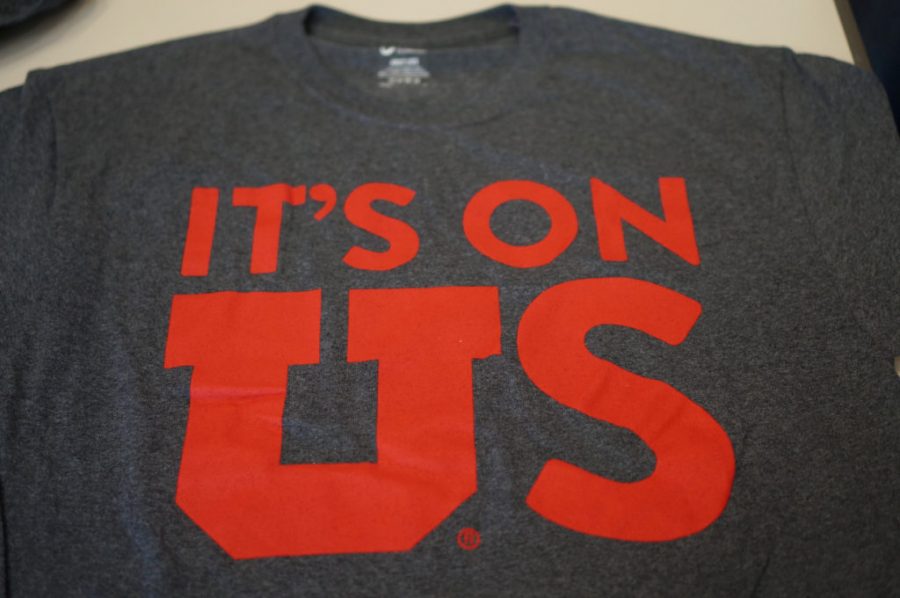On Oct. 24, the U launched its 2016 It’s On Us campaign aimed at preventing sexual assault on campus. Sponsored by ASUU, the campaign is an effort to encourage students to gain a better understanding of sexual assault and violence and to do something about it when it occurs.
More specifically, students pledge to: “Recognize that non-consensual sex is sexual assault”; “Identify situations where sexual assault may occur”; “Intervene in situations where consent has not or cannot be given”; “ Create an environment in which sexual assault is unacceptable and survivors are supported.’”
While each pledge is important, there is still something not explicitly addressed: that sexual assault victims are rarely believed when they come forward. This fact makes all of these pledge conditions secondary; if victims aren’t taken seriously, what good is an abstract definition of consent going to do? Although well-intentioned and a clear step in the right direction, the “It’s On Us” campaign misses the mark by not explicitly asking students to believe victims when they speak out.
Unlike the victims of any other violent crimes, evidence indicates that those who experience sexual assault are rarely, if ever, given the benefit of the doubt. On the contrary, their allegations are often met with intense scrutiny and disbelief, as well as accusations that maybe they did something to prompt a sexual encounter. This is true at the interpersonal level and equally true at the institutional level. Victims rarely find condolence or support from friends; they are usually met with rebuttals such as “Are you sure you don’t just regret having sex?” or “I know the person you’re accusing. They would never do that.” The police are rarely any more sympathetic. When a BYU student reported an alleged assault earlier this year, the Utah County sheriff’s deputy, Edwin Randolph, said that her allegations were “bull crap” and accused her of wanting to “screw up [the suspect’s] life.”
The evidence that victims don’t feel safe coming forward is not just anecdotal. Researchers at the U recently conducted a survey entitled “Campus Climate Survey on Sexual Assault 2016” that looked at the experiences and attitudes of students regarding sexual assault. The survey found that only five percent of students who had been assaulted reported it to the University. Why so few reports? Embarrassment, for one. More than 43 percent of victims who didn’t seek help said that they were too ashamed to do so. Even more troubling, over 56 percent said that they didn’t think their assault was serious enough to report.
The biggest takeaway from this research is not that more resources need to be available or that bystanders need to intervene when they see an assault happening. It is that we, as a school and society, need to believe before we dismiss. Rape culture has become so deeply indoctrinating that victims don’t even believe themselves when they are assaulted. This is unacceptable.
Others have recognized this systemic disbelief and are fighting against it. In September, Westminster College launched its “Start By Believing” campaign to do just this: to encourage students, faculty and community members to support and believe victims. Tiffany Perry is a student at Westminster and president of Tipping Point, a student club aimed at tackling issues surrounding sexual assault. In an interview with The Salt Lake Tribune, she said she wants victims to feel comfortable coming forward with their stories. “This campaign is a call to action for more than just legislators, policymakers and law enforcement,” Perry said. “This is a call to action to every student, friend or member of the community that when someone discloses to you that they have been sexually assaulted, that you will support them.”
It is heartwarming to see ASUU and university administrators making strides to raise awareness surrounding sexual assault. “It’s On Us” is a noble, necessary and important campaign that will undoubtedly make the U a more safe and welcoming place for students. Students and faculty should understand consent, intervene when an assault takes place and create an environment where sexual assault is absolutely intolerable. But most importantly, victims need to be embraced and accepted when they reach out for help. The U should follow in the footsteps of Westminster, because it all begins with believing.


